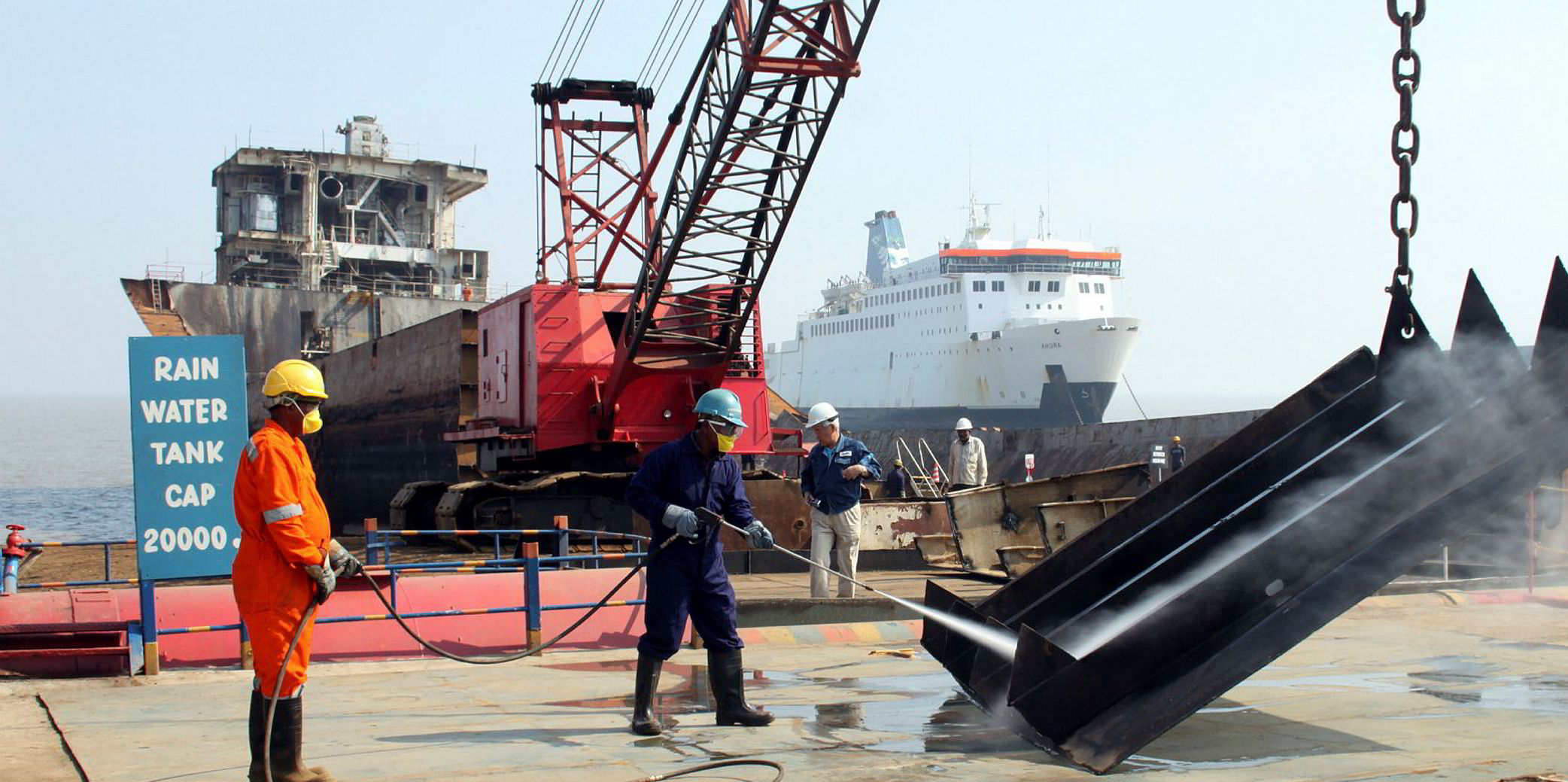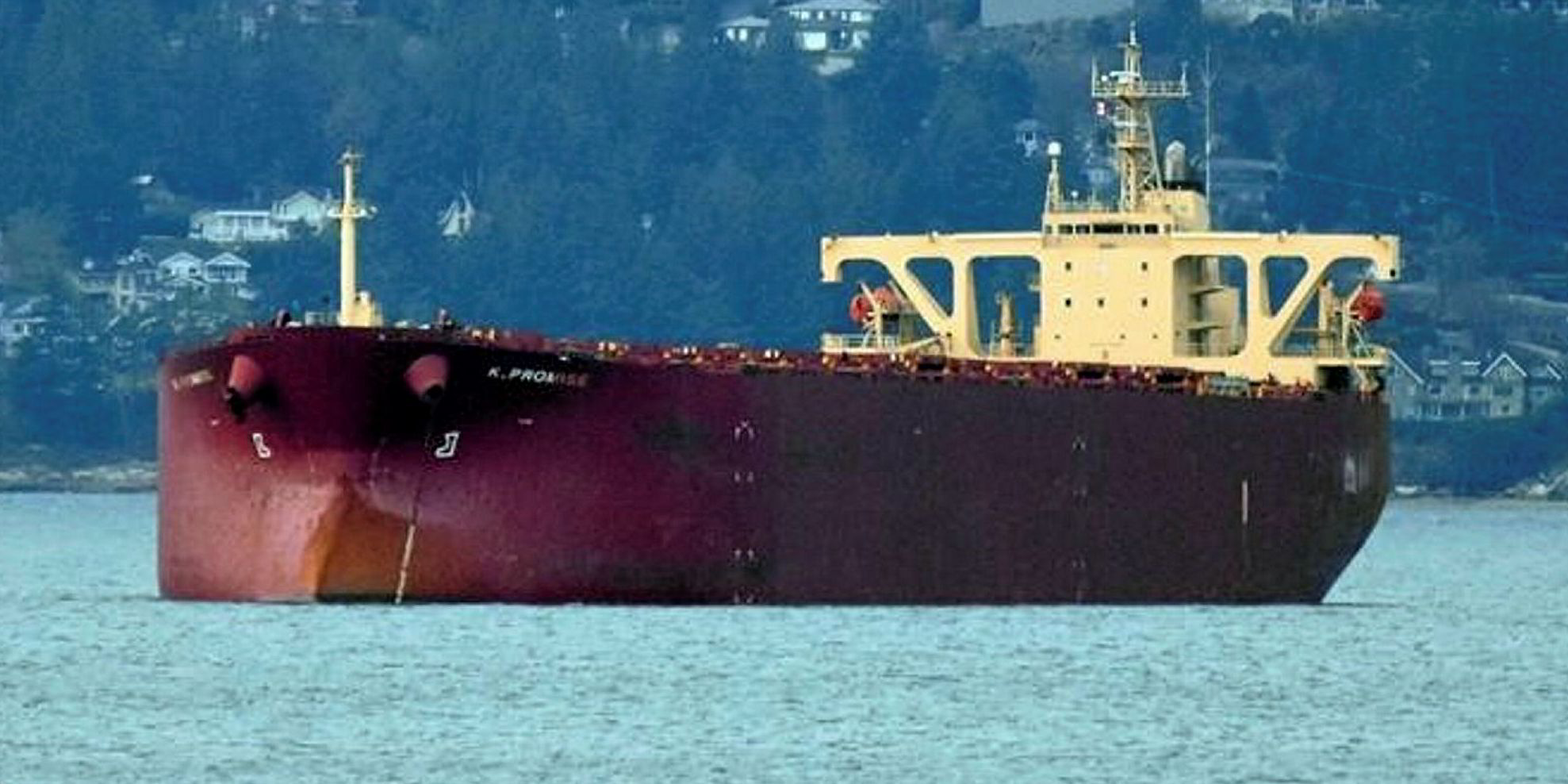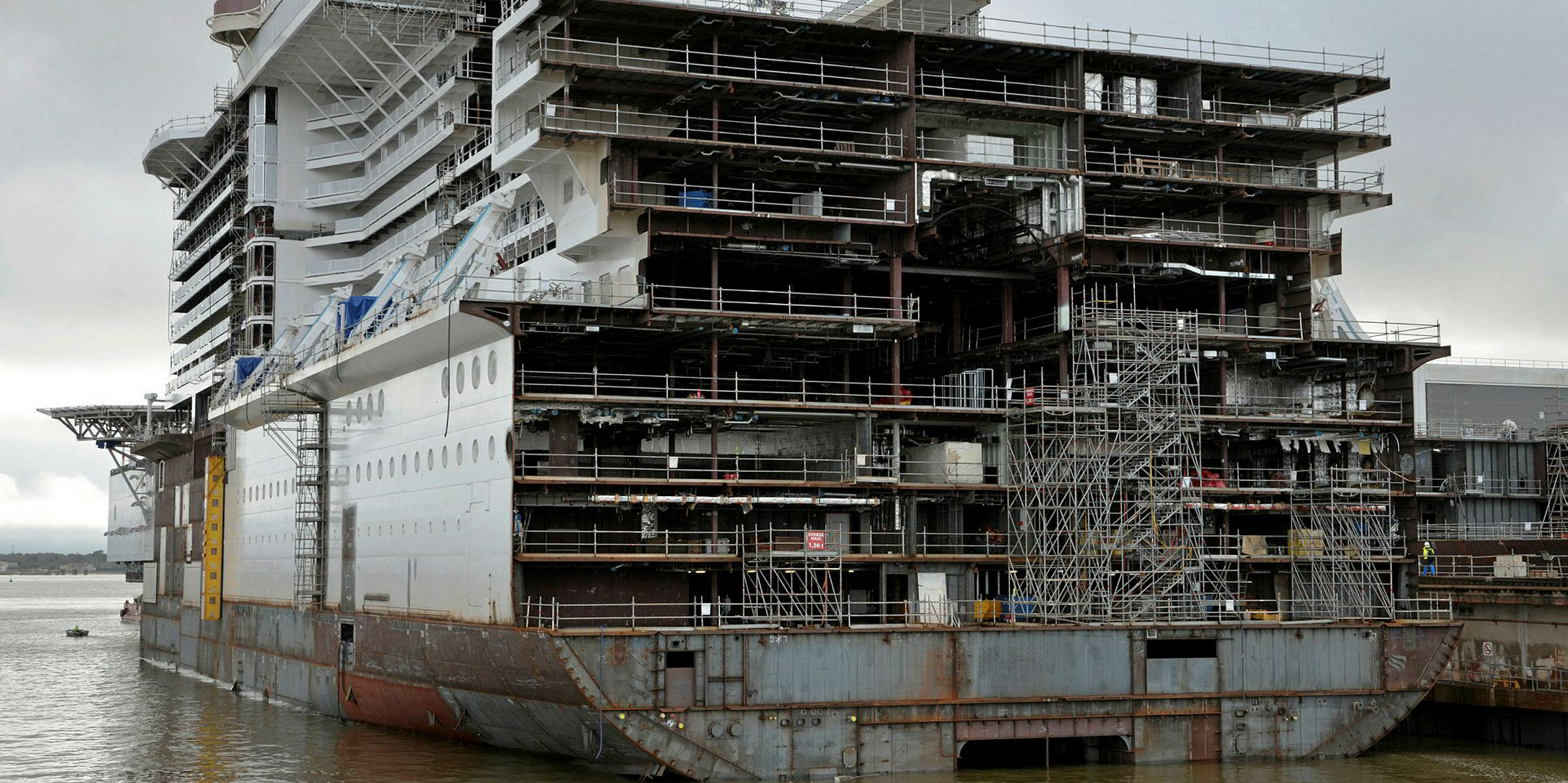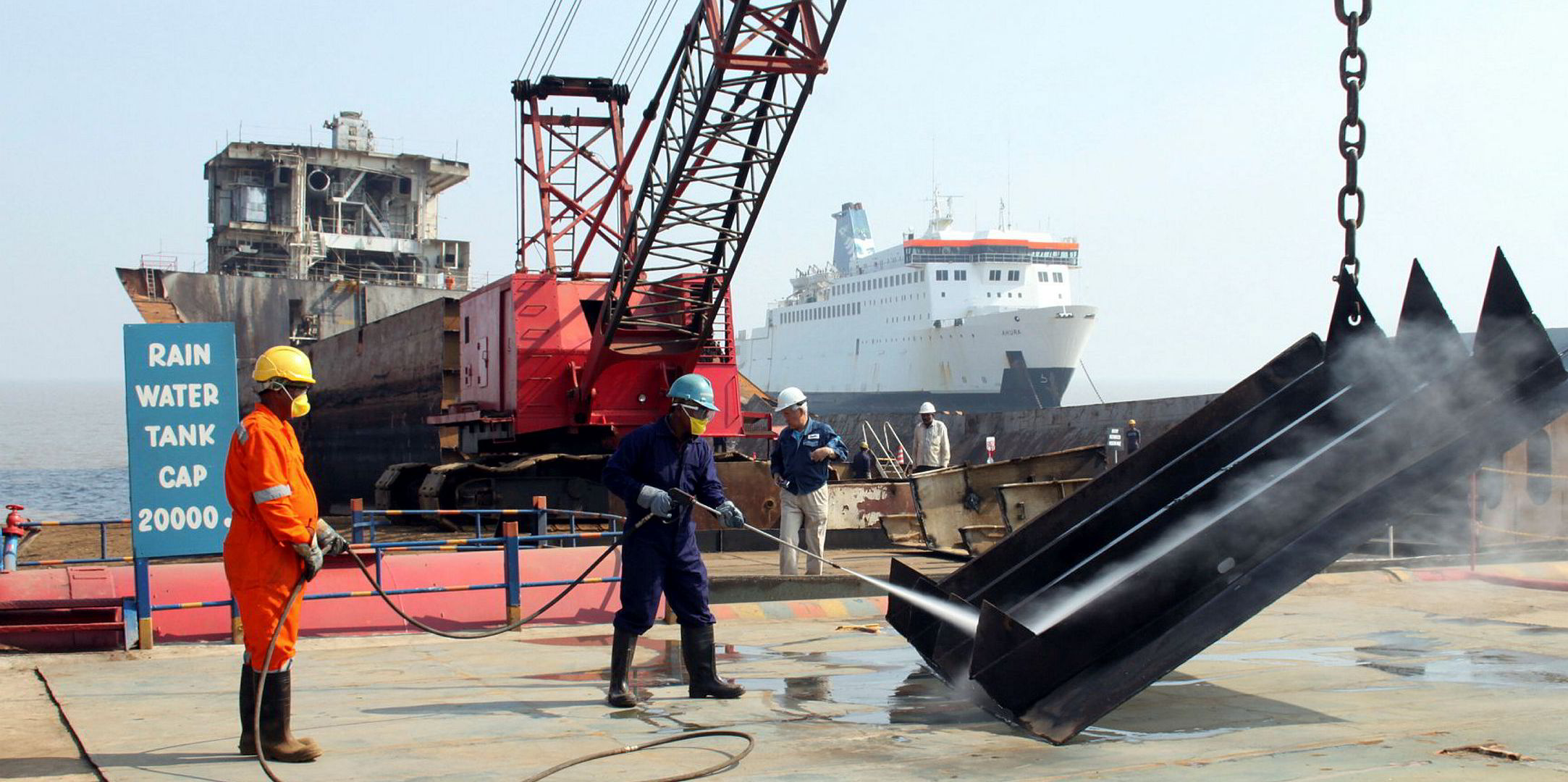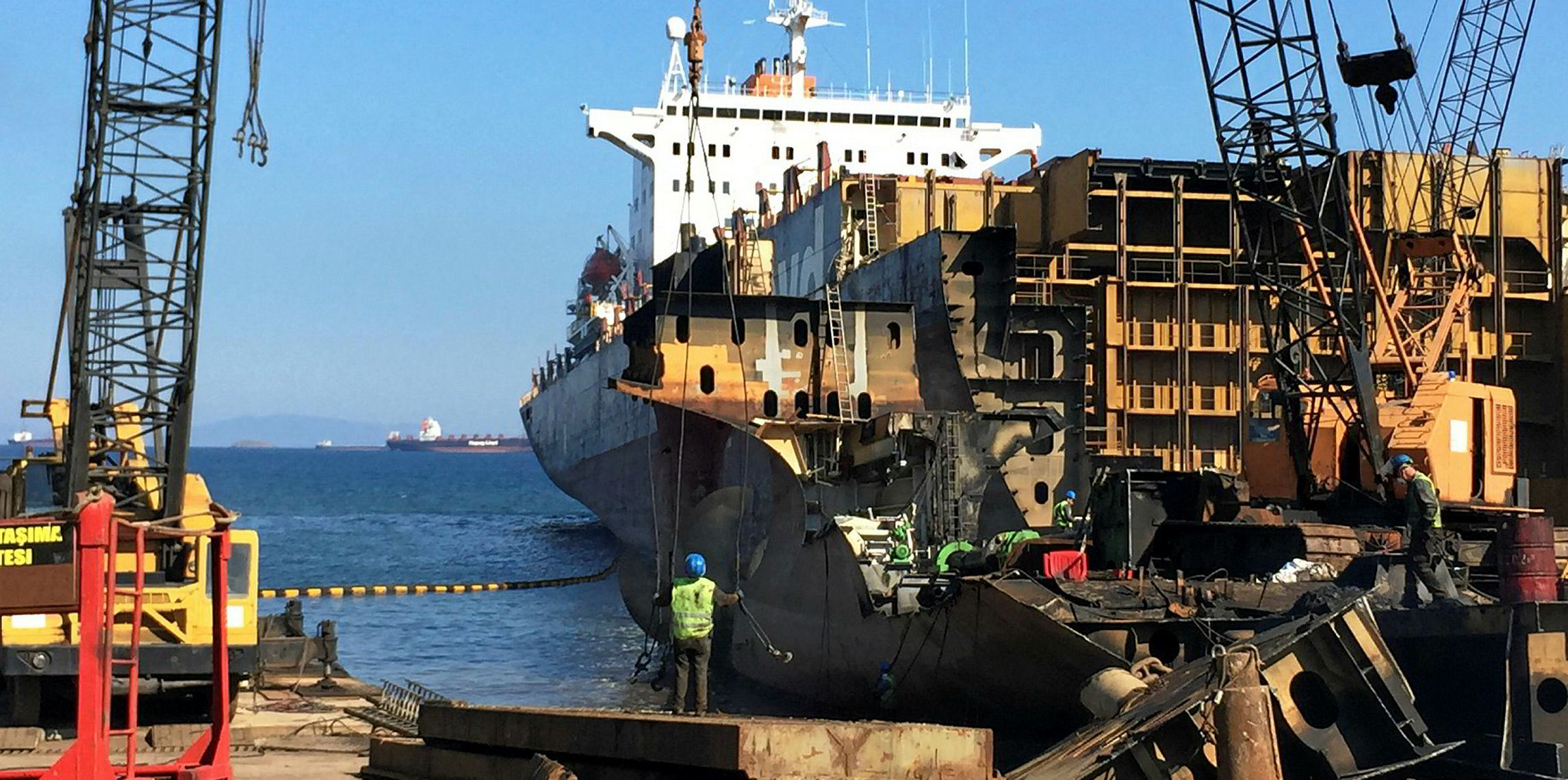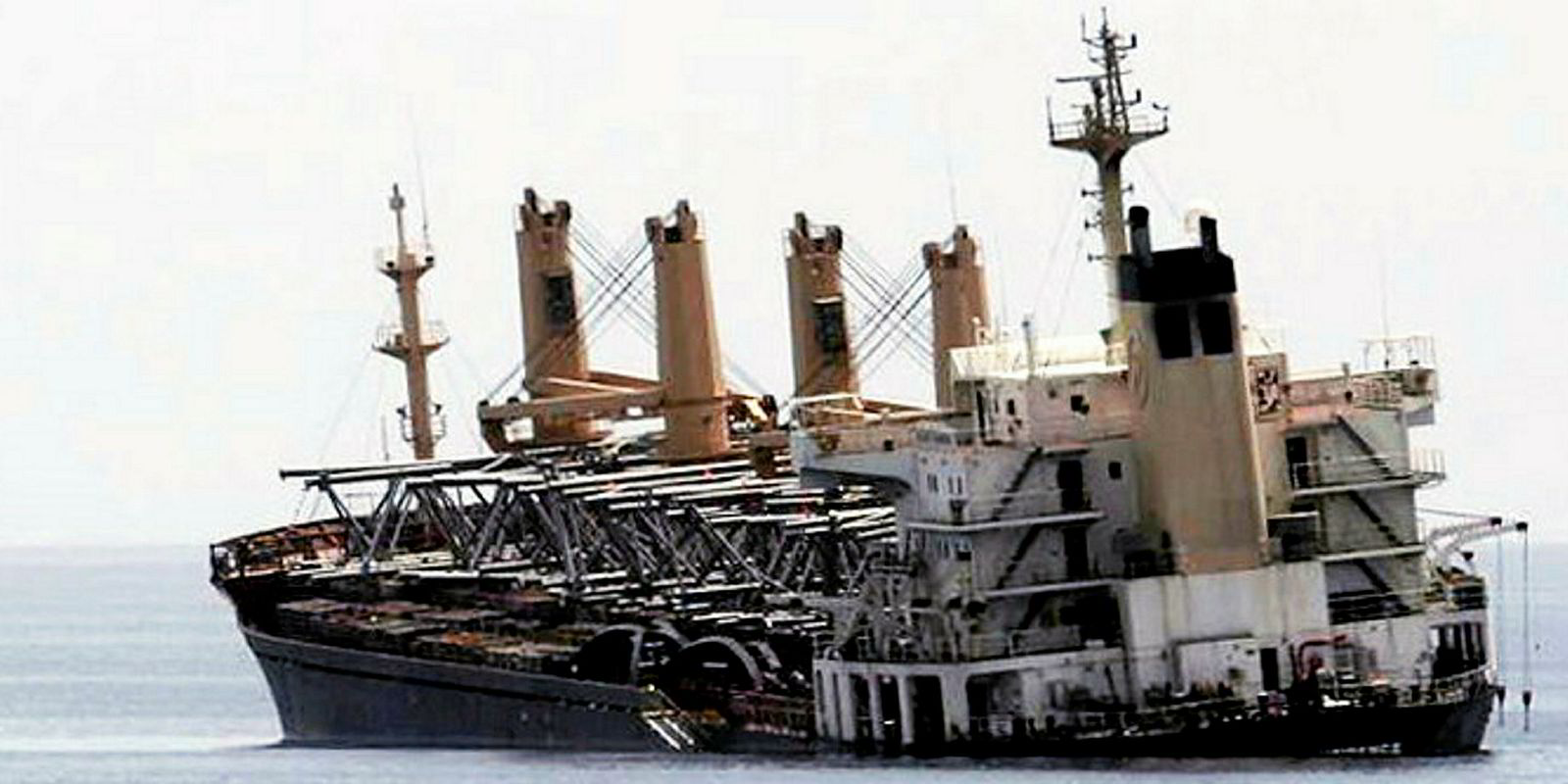The European Commission has turned down applications by the first two Indian ship recycling facilities seeking inclusion on a list of approved yards.
Shree Ram Vessel Scrap and Priya Blue Industries were audited by EC external representatives at the end of September 2018.
EU sources have now told Tradewinds the two recyclers had improved their recycling practices.
However, the auditor’s reports concluded it was not possible at this stage for them to be included on the list of yards that since 31 December 2018 owners must use for scrapping EU flag vessels.
“This is a major setback for Indian yards whom over the past three years have been promoting their green credentials,” commented an industry source.
Ingvild Jenssen, executive director and founder of environmental pressure group NGO Shipbreaking, claimed: "This should be a wake-up call for Indian yards if they want to be in the business of clean, safe shiprecycling."
The rejection raises questions on the challenge that lies ahead for other Indian yards waiting to be audited by the EC.
It is also questionable if there will be sufficient global recycling capacity for EU flag owners now Europe’s Ship Recycling Regulation (SRR) has kicked in.
Both Shree Ram and Priya Blue have been invited to submit their views on the auditor’s reports.
The EC has so far not released details but TradeWinds understands the auditor concluded that significant improvements are still needed or clarification covering the following:
- monitoring of the consequences of shiprecycling activities on the environment
- mitigating the environmental impact of ship dismantling in the intertidal zone
- compliance with labour laws
- availability of adequate medical assistance for workers in the event of serious injury.The hospital at Alang is only for minor injuries and the next facility is around 60 km or one hour’s drive away.
- sustainable downstream management covering a number of hazardous wastes, which are not handled by the local waste treatment facility.
Shree Ram and Priya Blue can reapply for inclusion on the EU approved list but for the time being their rejection has prompted a strong reaction from some involved in ship scrapping.
Recycling expert Ed McIlvaney said he had still to see a copy of the auditor’s reports but was disappointed.
"I find it unbelievable given major owners from around the world are more than happy to do green recycling at the Shree Ram and Priya Blue facilities," he said.
“It does not make any sense because these owners, including European owners, have been and witnessed the procedures. It has got to be political.”
Similar sentiments were expressed by Henning Gramann, chief executive of Hamburg-based Green Ship Recycling Services (GSR) who says some of the EC’s explanations are understandable but others a “little bit questionable.”
Lack of suitable hospital facilities was a fair observation but not something that individual yards could resolve.
Gramann indicates that one of the recyclers had been penalised for being unable to show how it handled a certain hazardous waste but Inventory of Hazardous Materials (IHM) reports showed that the yard had never received a vessel with it on board.
“So how can it have a waste manifest to show to the auditors,” asked Gramann. The recycler had written procedures and a storage room.
Gramann said the issue of cutting taking place in the intertidal zone had been discussed earlier with the EC’s former policy officer for waste management and recycling, Emilien Gasc, who, it is claimed, acknowledged that primary cutting in or above the water cannot be avoided, except in drydocks, and was, therefore, acceptable.
Overall, says Gramann, it was not clear from the EC what comprised a “major non-conformity and basically a killer for a listing.”
Jenssen of NGO Shipbreaking said that if Indian recyclers want to continue they should find alternative, appropriate locations to Alang.
She gave as an example the Pipavav shiprecycling facility established 10 years ago with Japanese funding and in collaboration with the state of Gujarat.
It was forced to close because of the difficulty competing with lower-cost beaching yards but “in 2019 it would find a completely different business context and have a future.”
Such a yard today in India, with the proper downstream waste management facilities, had potential to make it onto the EU approved list, said Jenssen.
